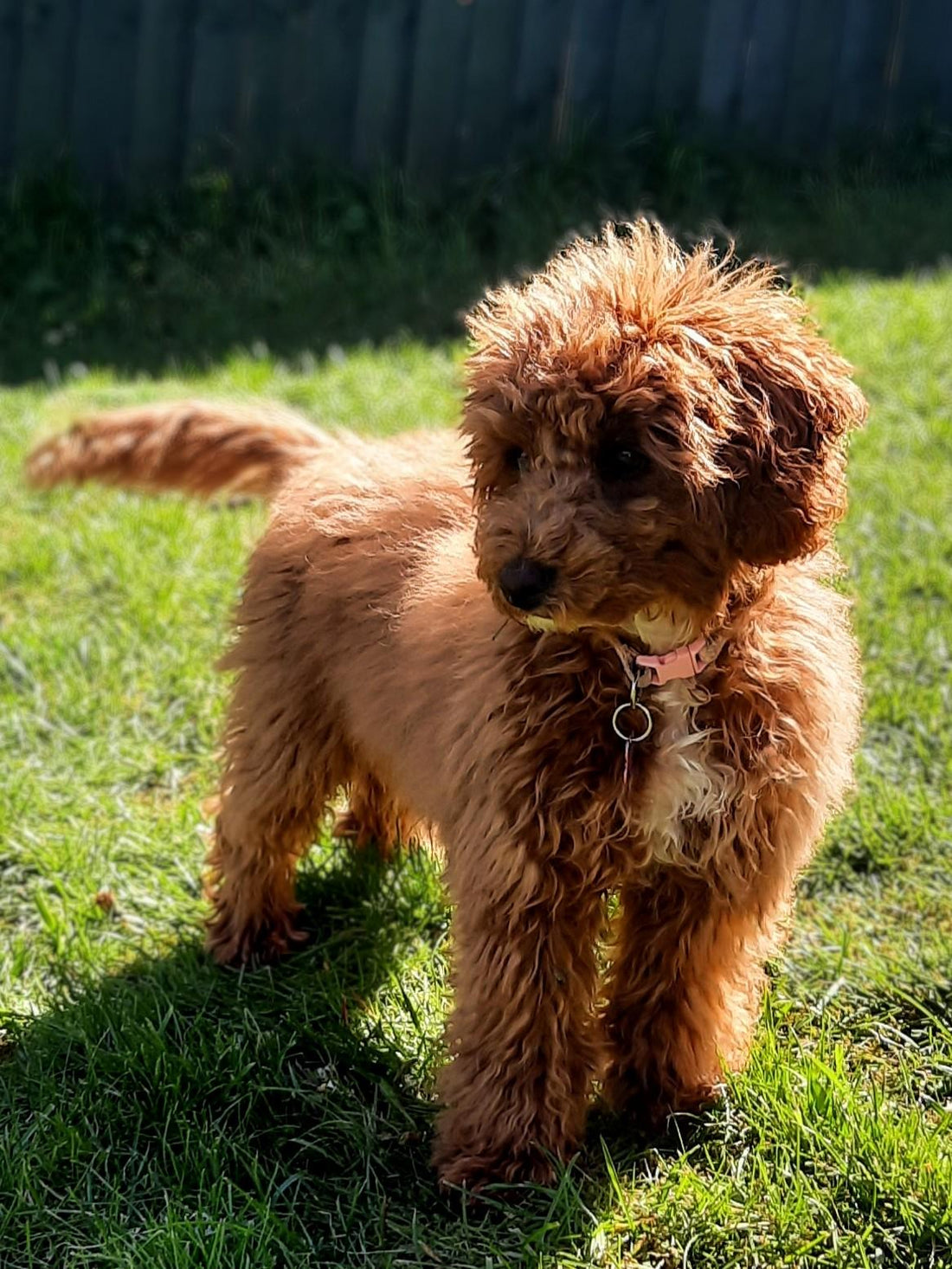
Checklist for bringing home your new puppy
Share
Bringing a new puppy into your home is an exciting and joyous experience, but it also comes with a lot of responsibility. To help you prepare, we've compiled the ultimate checklist to ensure you're ready for your furry friend's arrival. From essential supplies to training tips, this guide covers everything you need to know to make your puppy's transition as smooth and comfortable as possible.

Preparing for the Arrival of Your New Puppy
Before your puppy arrives, it's crucial to have everything ready. Here's a list of essential items you'll need:
- Crate and Bedding: A comfortable crate will provide a safe space for your puppy. Include soft bedding for added comfort.
- Food and Water Bowls: Stainless steel or ceramic bowls are best as they're durable and easy to clean.
- Puppy Food: Choose a high-quality puppy food appropriate for your breed's size and nutritional needs.
- Walking Accessories: A soft, adjustable collar and harness, plus a sturdy lead are essential for walks and training. Our XS range of collars, harnesses and leads are the perfect choice for those first adventures, browse our collections here- https://littlelunaloves.co.uk/collections/all
- Toys: Provide a variety of toys to keep your puppy entertained and to help with teething.
- Grooming Supplies: Brushes, nail clippers, and puppy-safe shampoo will keep your pup looking their best.
- Cleaning Supplies: Accidents happen, so stock up on enzymatic cleaners to handle any messes.
First Night with Your New Puppy
The first night at home can be challenging for both you and your puppy. Here are some tips to help ease the transition:
- Create a Cosy Sleeping Area: Set up a comfortable sleeping space in a quiet area of your home. A crate with soft bedding works well.
- Stick to a Routine: Establish a bedtime routine to help your puppy feel secure. This might include a short walk and some quiet playtime.
- Comfort Items: Provide a blanket or toy that smells like the puppy's mother or littermates to help them feel more at ease.
- Patience and Reassurance: Be prepared for some crying or whining. Comfort your puppy, but avoid picking them up every time they make noise, as this can create a habit.
Feeding Your New Puppy
Proper nutrition is vital for your puppy's growth and development. Follow these guidelines to ensure your pup is getting the right start:
- Puppy-Specific Food: Choose a high-quality food formulated for puppies. Look for brands that list meat as the first ingredient.
- Feeding Schedule: Puppies typically need to eat three to four times a day. Follow the feeding instructions on the food package and adjust as needed based on your vet's advice.
- Portion Control: Measure your puppy's food to avoid overfeeding. Monitor their weight and adjust portions if necessary.
- Water Access: Always provide fresh water and clean the bowl daily
Pet Insurance
Investing in pet insurance can save you from unexpected veterinary costs. Consider the following when choosing a policy:
- Coverage Options: Look for plans that cover accidents, illnesses, and routine care.
- Cost: Compare premiums, deductibles, and reimbursement rates to find the best value.
- Reputation: Research insurance companies to ensure they have a good track record for customer service and claims processing.
Dog Vaccinations
Vaccinations are crucial to protect your puppy from serious diseases. Your vet will provide a vaccination schedule, but here are some common vaccines your puppy will need:
- Distemper
- Parvovirus
- Kennel Cough
- Rabies
Follow your vet's recommendations for booster shots and additional vaccines based on your puppy's lifestyle and exposure risk.
Puppy Training
Training is essential for a well-behaved dog. Start early and be consistent with these tips:
- Basic Commands: Teach basic commands like sit, stay, come, and down. Use positive reinforcement techniques.
- House Training: Establish a routine for potty breaks and reward your puppy for going outside.
- Crate Training: Use the crate as a safe space and not a punishment. Gradually increase the time your puppy spends in the crate.

Socialising Your Puppy
Proper socialisation helps your puppy grow into a well-adjusted dog. Introduce your puppy to new experiences, people, and other animals gradually:
- Puppy Classes: Enrol in puppy socialisation classes for controlled interactions.
- Walks: Take your puppy on regular walks to expose them to different environments.
- Playdates: Arrange playdates with other vaccinated puppies.
Puppy Grooming
Regular grooming keeps your puppy healthy and looking their best. Here’s how to get started:
- Brushing: Brush your puppy’s coat regularly to prevent matting and reduce shedding.
- Bathing: Use a puppy-safe shampoo and bathe your puppy as needed.
- Nail Trimming: Trim your puppy’s nails regularly to prevent overgrowth and discomfort.
- Dental Care: Brush your puppy’s teeth with dog-safe toothpaste to maintain oral health.
Top Tips for New Puppy Owners
- Be Patient: Puppies are learning and growing, so patience is key.
- Consistent Routine: Establish a daily routine to help your puppy feel secure.
- Health Checks: Regular vet visits are crucial to monitor your puppy’s health and development.
- Bonding Time: Spend quality time with your puppy to build a strong bond.
Bringing home a new puppy is a wonderful adventure filled with joy and challenges. By following this comprehensive checklist, you'll be well-prepared to provide a loving and nurturing environment for your new furry family member. Enjoy every moment of this exciting journey and cherish the unconditional love and companionship your puppy brings.
